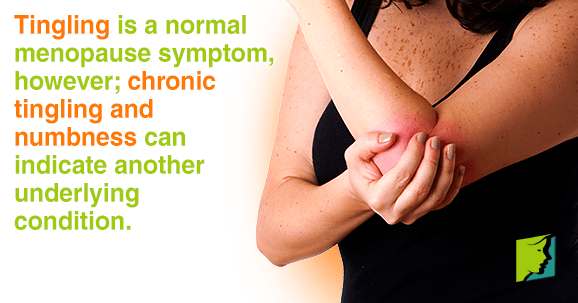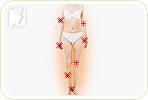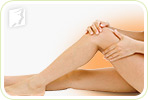Tingling, often coinciding with numbness, is a normal, though uncomfortable sensation that everyone will probably experience at some point in their lives. Usually, it is simply the body saying that it's time to start doing something different - like stand and stretch after a long period of sitting, for example. Tingling is also, though uncommon, a normal symptom for women going through the menopause transition. However, chronic tingling and numbness can be an indicator of another underlying condition, in which case, it is important to speak with your doctor to rule out a more serious problem.
About Tingling
Also referred to as pins and needles, tingling isn't usually something that merits too much alarm. In the scientific world, this sensation is known as paresthesia, and occurs when something presses against a nerve or blocks blood flow to an area, prohibiting the brain's sensory messages from being received. This part of the body is then said to have “fallen asleep”, and relief is often found by quickly changing position. A pricking sensation is then felt when the brain and nerves resume communication. Tingling is commonly felt in the hands, arms, legs, and feet, though it can be felt anywhere in the body.
Causes of Tingling
It is very common to get menopausal tingling extremities. It occurs because of the hormones that begin fluctuating at this time of life. Estrogen has a complex effect on the central nervous system, and many women have reported feeling this sensation.
Prolonged tingling, however, could also be the symptom of a larger issue, such as the ones listed below:
- Animal or insect bites
- Seafood toxins
- Vitamin deficiency
- Medication side effect
- Damage from lead, alcohol, tobacco, or chemotherapy
- Carpal tunnel syndrome
- Herniated disk
- Hypothyroidism
- Multiple sclerosis
- Diabetes
- Stroke
Treatment for Tingling Sensations
The best treatment for feelings of pins and needles is to get to the root of the cause. For example, menopausal women would be served well by encouraging their body to find and restore its natural hormonal balance. This can be achieved by staying hydrated, a healthy diet, getting regular exercise, and sleeping deeply. If one of the conditions listed above is the cause of your tingling, it is recommended that you seek professional care in order to treat the underlying issue.
In the meantime, here are some suggestions to help you relieve the feelings of pricking and tingling:
Stretching. This is one of the easiest and most beneficial practices to maintain at home. It helps to increase blood circulation, which can improve feeling all the way to those fingers and toes.
Yoga. The combination of body postures, relaxation techniques, and breathing practices works wonders for the whole body, including any pinched and numb parts.
Swimming. This is an excellent low-impact sport that will move muscles and increase heart rate with less risk of potential injury in sensitive areas.
Tingling is a normal and common sensation felt at point throughout life. Chronic tingling could be a sign of a more serious issue, but even then, options are available. It's important to make positive choices every day that will improve total well-being and give the support your body needs to thrive.
Sources
- De Azevedo, A.C. & Baptista, F. (2011). Influence of habitual physical activity on the symptoms of climacterium/menopause and the quality of life of middle-aged women. International Journal of Women's Health, 3, 319-328. Retrieved from http://www.ncbi.nlm.nih.gov/pmc/articles/PMC3220314/
- Heller, J. (2013). Numbness and Tingling. Retrieved January 27, 2015, from http://www.nlm.nih.gov/medlineplus/ency/article/003206.htm.




